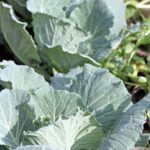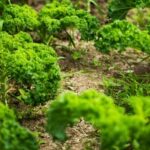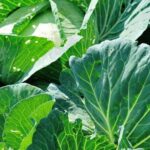Are you considering using copper in your vegetable garden but wondering, “Is copper safe for vegetable gardens?” It’s crucial to prioritize the safety of materials used in gardening to ensure the health of both plants and consumers. In this article, we will explore the use of copper in vegetable gardens, discussing its benefits, potential risks, best practices, alternative options, and scientific research findings.
As we delve into the topic of using copper in gardens, it’s important to understand what copper is and its role in various industries. Copper is a natural element that has been utilized for centuries due to its excellent conductivity and durability. However, when it comes to gardening, there are important considerations regarding the safety and effectiveness of using copper as a soil amendment or pest control method.
Using copper in gardens can provide a range of benefits such as improving soil conditions and aiding in pest management. However, there are also potential risks associated with the use of copper in vegetable gardens. Concerns about the safety of copper and its impact on plant growth and environmental health must be carefully evaluated before incorporating it into gardening practices. This article aims to provide valuable insights and guidelines for safely navigating the use of copper in vegetable gardens.
Understanding Copper
Copper is a versatile metal that has been utilized for various purposes throughout history. This section will delve into what copper is and its uses in different industries.
What Is Copper?
Copper is a chemical element with the symbol Cu and atomic number 29. It is a ductile metal with excellent conductivity, making it valuable for electrical applications. In addition to its electrical properties, copper also exhibits antimicrobial properties, which is important to consider when using it in gardening.
Uses of Copper in Various Industries
Copper is widely used in the construction industry for plumbing, roofing, and heating systems due to its durability and corrosion resistance. It is also commonly used in electrical wiring and components. Furthermore, copper-based compounds are utilized in agriculture as fungicides and pesticides for plant disease control.
While the versatility of copper makes it a popular choice for many applications, including gardening, it is important to explore both its benefits and potential risks when using this metal in vegetable gardens.
Benefits of Using Copper in Gardens
Copper is a versatile element that has been used in various industries for centuries, including agriculture and gardening. When it comes to vegetable gardens, copper can offer several benefits when used properly. Here are some of the advantages of using copper in gardens:
1) Soil Improvement:
Copper is known to have antimicrobial properties, which can help prevent the growth of harmful bacteria and fungi in the soil. This can lead to healthier soil conditions, promoting better plant growth and overall garden health.
2) Pest Control:
Copper-based products, such as copper fungicides, can be effective in controlling certain pests and plant diseases in vegetable gardens. These products can help protect plants from common issues like powdery mildew and bacterial blight.
3) Nutrient Absorption:
Copper plays a crucial role in the process of photosynthesis and helps with the absorption of important nutrients by plants. This can contribute to improved plant growth and higher yields in vegetable gardens.
When considering the use of copper in vegetable gardens, it is important to understand the potential risks as well. While there are benefits to using copper, it is essential to follow best practices and guidelines for safe application in order to minimize any negative impact on the environment and human health.
Potential Risks of Using Copper in Gardens
When it comes to using copper in gardens, there are potential risks that should be taken into consideration. While copper is known for its effectiveness in controlling pests and improving soil conditions, it is important to be aware of the potential negative effects as well. One of the main concerns is the accumulation of copper in the soil over time, which can lead to toxicity in plants and other organisms.
Excessive use of copper-based products can also have harmful effects on beneficial soil microorganisms and earthworms, which play a vital role in maintaining healthy soil structure. In addition, runoff from copper-containing compounds can contaminate nearby water sources, posing a risk to aquatic life. It is important to use copper sparingly and according to recommended guidelines to minimize these potential risks.
Research has shown that while copper is effective in controlling certain fungal diseases, it can also have phytotoxic effects on plant tissues if not used properly. This means that applying copper-based products at high concentrations or during unfavorable weather conditions can result in damage to the very plants you are trying to protect.
Overall, while copper can be a valuable tool in gardening when used responsibly, it is crucial for gardeners to be aware of the potential risks and take steps to mitigate them.
| Potential Negative Effects of Copper | Examples |
|---|---|
| Soil toxicity | Accumulation of copper leading to unsuitable soil conditions for plant growth |
| Harmful impact on beneficial organisms | Adverse effects on soil microorganisms and earthworms |
| Phytotoxic effects on plants | Damage to plant tissues due to improper application or high concentrations |
Best Practices for Using Copper in Vegetable Gardens
Copper has been a popular material for gardening for centuries due to its natural properties that can help with pest control and soil improvement. However, it is essential to use copper responsibly to ensure the safety of vegetable gardens and the plants that grow in them. Understanding the best practices for using copper in vegetable gardens is crucial for maximizing its benefits while minimizing any potential risks.
When using copper in vegetable gardens, it is important to choose the right form of copper-based products. Copper sulfate, copper fungicides, and copper-based pesticides are commonly used in gardening. These products should be used according to the manufacturer’s instructions and guidelines to ensure safe application. Using excessive amounts of copper can lead to soil toxicity and harm beneficial organisms such as earthworms.
Proper application methods for copper-based products include targeting specific problem areas rather than blanket applications. This approach helps minimize the buildup of copper in the soil while effectively addressing issues such as fungal diseases or insect infestations. Additionally, monitoring soil pH levels is beneficial when using copper, as acidic soils can increase the solubility of copper, leading to potential risks.
In addition to following best practices for using copper in vegetable gardens, it is also essential to consider alternative options for pest control and soil improvement. Organic and natural alternatives such as neem oil, diatomaceous earth, and compost teas can be effective substitutes for chemical-based products containing copper. Implementing integrated pest management strategies that focus on prevention and non-chemical interventions can further reduce the reliance on copper in vegetable gardens.
| Safe Application Methods | Alternative Options |
|---|---|
| Use according to manufacturer’s instructions | Neem oil |
| Target specific problem areas | Diatomaceous earth |
| Monitor soil pH levels | Compost teas |
Alternative Options to Copper in Vegetable Gardens
Organic Pest Control
One alternative option to using copper in vegetable gardens is organic pest control methods. This approach focuses on using natural substances and beneficial insects to manage pests without the need for potentially harmful materials like copper. For example, introducing ladybugs or lacewings into the garden can help control aphids and other harmful insects, reducing the reliance on chemical or metal-based solutions.
Companion Planting
Companion planting is another alternative option that promotes a more holistic and natural approach to gardening. By strategically planting certain vegetables, herbs, and flowers together, gardeners can create a system where plants work together to deter pests, improve soil health, and enhance overall growth. For instance, planting marigolds alongside tomatoes can help repel nematodes without the use of copper-based products.
Organic Soil Amendments
Instead of relying on copper for soil improvement, consider using organic soil amendments such as compost, aged manure, and natural fertilizers. These materials not only enrich the soil with essential nutrients but also support beneficial microbial activity that contributes to healthy plant growth. By focusing on building rich, fertile soil through organic means, gardeners can reduce their reliance on potentially controversial materials like copper.
When evaluating alternative options to using copper in vegetable gardens, it is important for gardeners to consider their specific needs and preferences regarding pest control and soil improvement. Each method has its own advantages and limitations, so it’s essential to thoroughly research and experiment with different approaches to find the most effective strategy for your garden’s unique conditions.
Case Studies and Research Findings
When it comes to understanding the safety of using copper in vegetable gardens, it is important to consider real-life examples and scientific research. In recent years, there has been an increased focus on studying the impact of copper on plants and soil, leading to valuable insights for gardeners.
Here are some case studies and research findings that shed light on the use of copper in vegetable gardens:
1. Study conducted by the University of California, Davis: The University of California, Davis conducted a study on the use of copper-based fungicides in organic farming. The research found that copper-based products can effectively control certain plant diseases without leaving harmful residues in the soil. This study provides evidence that when used responsibly, copper can be a safe option for managing plant diseases in vegetable gardens.
2. Case study on soil improvement: A case study from an organic farm in Oregon demonstrated the positive effects of using copper for soil improvement. By incorporating small amounts of copper into the soil, the farm noticed improved water retention and overall soil health. This case study highlights how careful application of copper can contribute to a more sustainable and productive vegetable garden.
3. Scientific research on bioaccumulation: Research published in the Journal of Environmental Quality examined the potential for copper bioaccumulation in vegetables grown in contaminated soils. The study found that while excessive levels of copper can lead to bioaccumulation, proper management and monitoring can prevent this issue. These findings emphasize the importance of following recommended guidelines when using copper-based products in vegetable gardens.
As evidenced by these case studies and research findings, there is valuable information available regarding the use of copper in vegetable gardens. While there are potential risks associated with improper use, when used responsibly and within recommended guidelines, copper can be a safe and effective option for maintaining healthy and vibrant vegetable gardens.
Conclusion
In conclusion, the use of copper in vegetable gardens has both its benefits and potential risks. While copper can help improve soil conditions, control pests, and promote plant growth, it is important to be aware of the potential negative effects of using copper in gardens. Concerns about the safety of copper in vegetable gardens should not be overlooked, as improper use or overuse of copper-based products can harm the environment and pose risks to human health.
Best practices for using copper in vegetable gardens include following proper application methods and using it sparingly. It is crucial to adhere to guidelines and regulations set by local authorities regarding the use of copper in gardening. Additionally, exploring alternative options such as organic and natural pest control methods can provide a safe and sustainable approach to maintaining a healthy vegetable garden.
The verdict on whether copper is safe for vegetable gardens ultimately depends on how it is used and managed. While copper can offer significant benefits in gardening, it is essential to consider its potential risks and explore alternative options for maintaining a safe and healthy vegetable garden environment. So, if handled responsibly, it
Frequently Asked Questions
Is Copper Good for Vegetable Garden?
Copper can be beneficial for a vegetable garden as it has fungicidal properties that can help prevent diseases like blight and mildew. However, it’s important to use it sparingly as excessive copper can be harmful to certain plants and soil organisms.
Is Copper Good for Tomato Plants?
Copper can be helpful for tomato plants, particularly in preventing common fungal diseases like early blight or late blight. Applying a copper fungicide can provide protection against these issues, but it’s essential to follow the proper application guidelines to avoid negative effects.
Is It Safe to Eat Vegetables Treated With Copper Fungicide?
In general, it is safe to eat vegetables that have been treated with copper fungicide as long as the fungicide has been used properly and in accordance with labeled instructions. However, it’s advisable to wash the vegetables thoroughly before consuming them to remove any residual traces of the fungicide.

If you’re looking to get into vegetable gardening, or are just looking for some tips on how to make your current garden better, then you’ve come to the right place! My name is Ethel and I have been gardening for years. In this blog, I’m going to share with you some of my best tips on how to create a successful vegetable garden.





